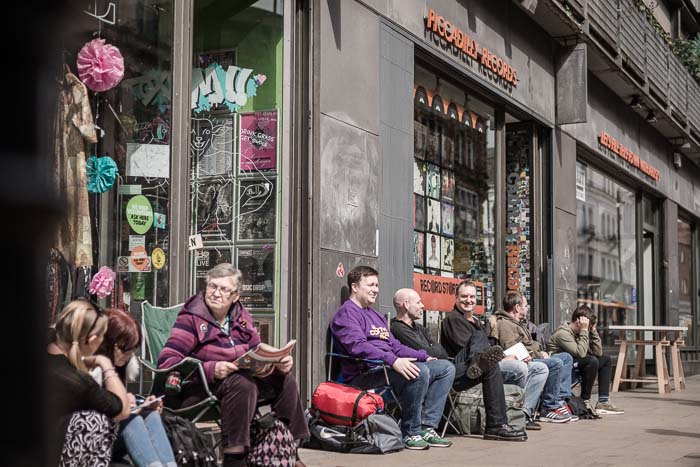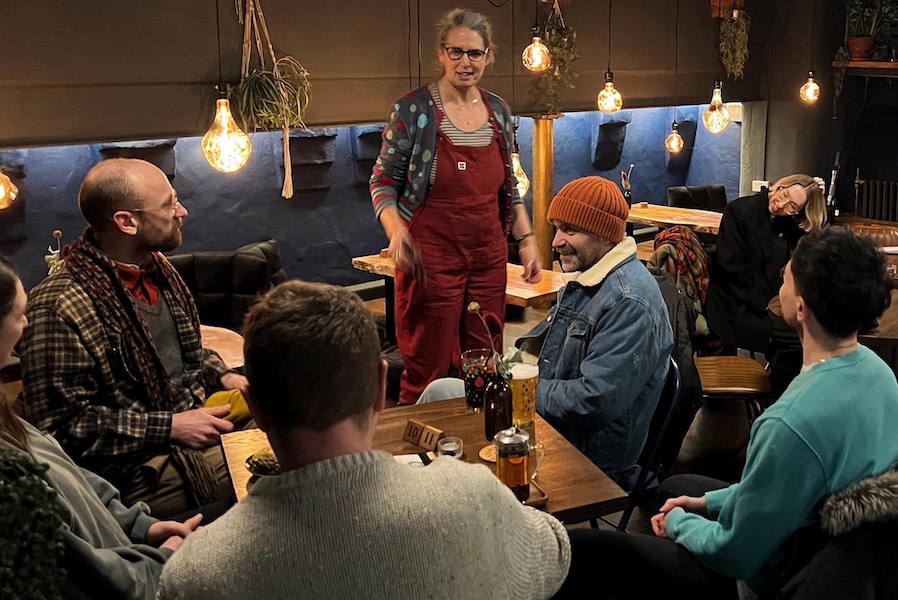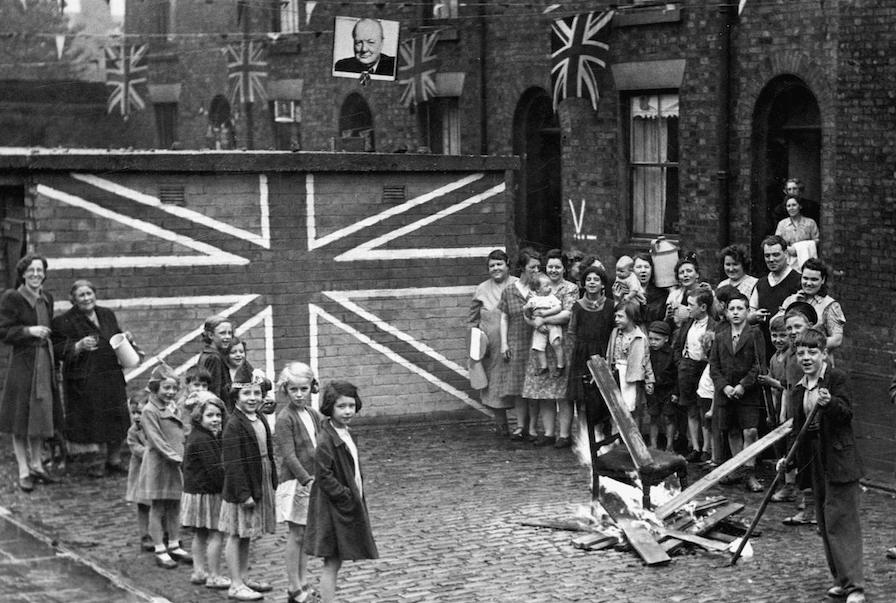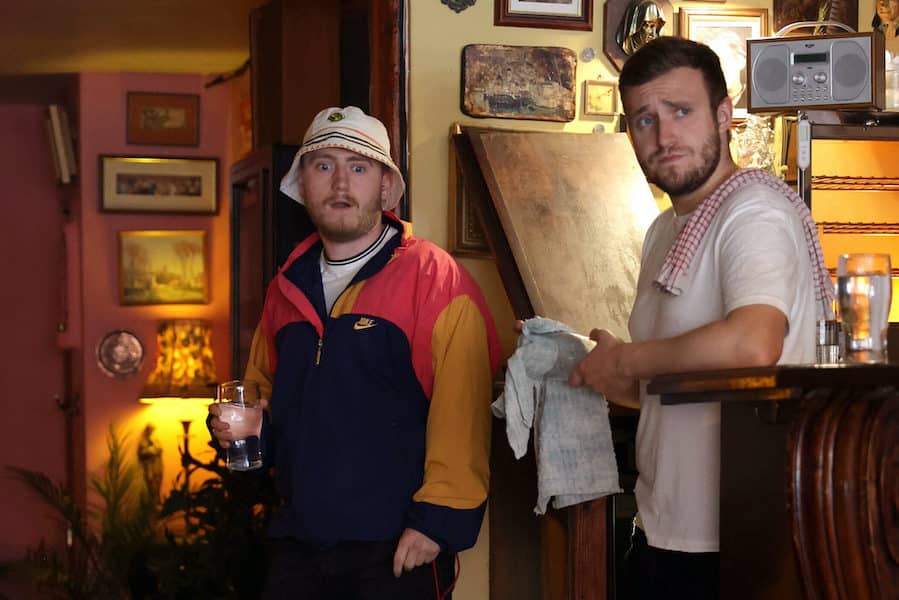“There’s a whole side to the story of Manchester’s music history that needs to be told”
- Written by Thom Bamford
- Last updated 8 months ago
- City of Manchester, Featured, History, Music
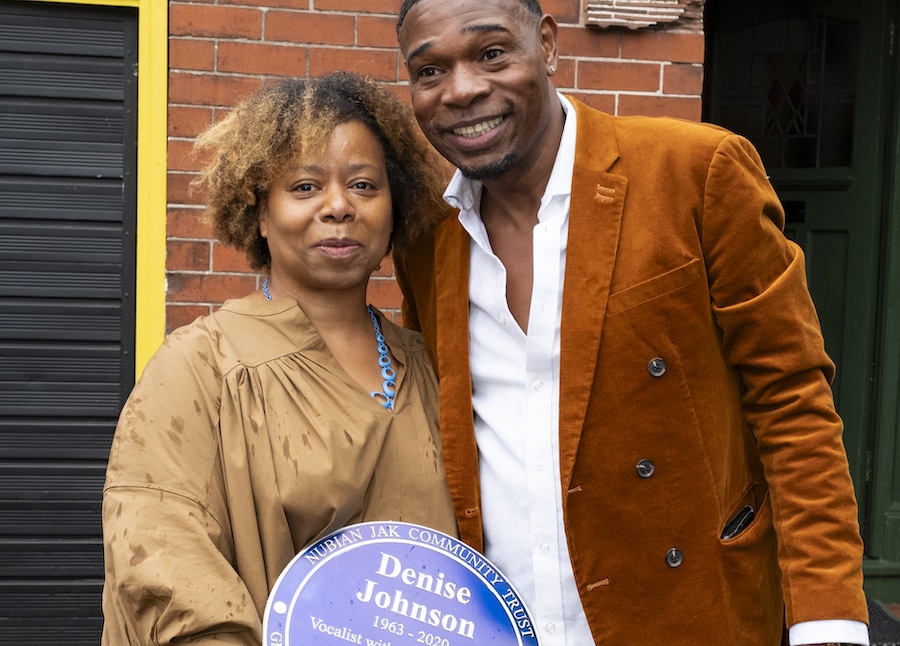
Manchester has long been hailed as one of the most influential music cities in the world, but one important story remains relatively untold – the invaluable contributions of Black musicians to the city’s rich musical heritage.
Karen Gabay, a local social historian, TV producer, and radio broadcaster, is on a mission to change that.
In collaboration with the Nubian Jak Community Trust and the Manchester Digital Music Archive, Karen is spearheading an initiative to install blue plaques across Greater Manchester, commemorating the Black musicians who have left a mark on the city and beyond.
Celebrating Manchester’s black musicians
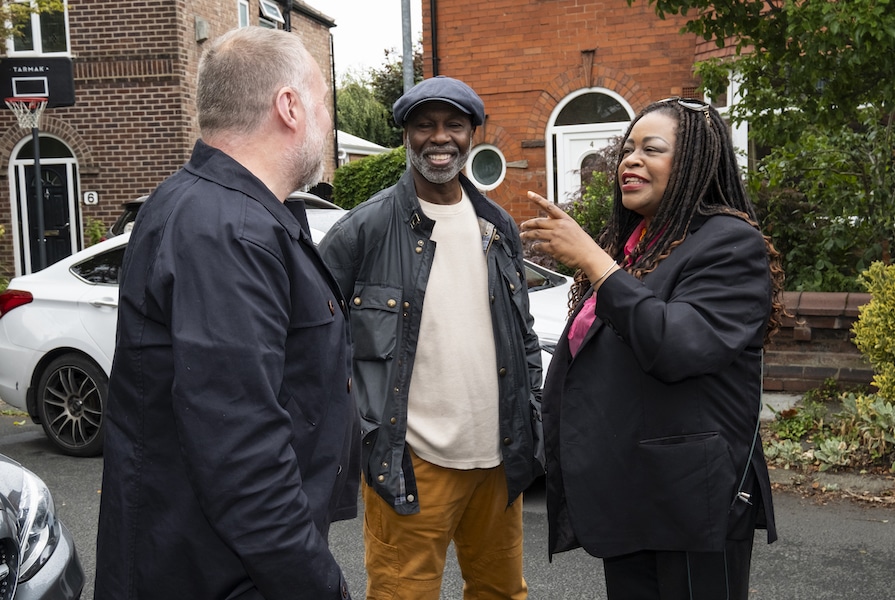
Manchester’s storied musical history is globally recognised, but for a city that has birthed and hosted so many iconic artists, the lack of visible tributes to Black musicians is glaring.
Blue plaques and statues celebrating these figures are astonishingly scarce.
The Blue Plaques for Black Music initiative aims to rectify this oversight, ensuring that Manchester’s Black musical history is not only acknowledged but celebrated for generations to come.
Karan Gabay
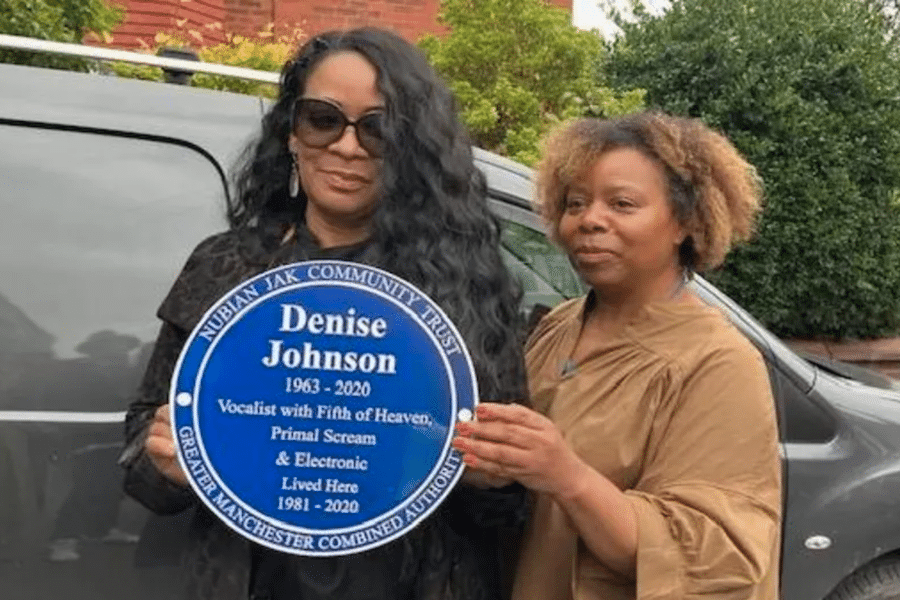
Karen Gabay is no stranger to the intricacies of Manchester’s music scene.
As a broadcaster and historian, she has spent over a decade documenting the city’s history, uncovering narratives that are often overlooked.
“I do a lot of interviews for radio, TV, and music projects,” Karen said.
“Often, when I mention Black musicians from Manchester, people outside the city just aren’t familiar with the names.
“The conversation tends to be dominated by bands like The Smiths and Oasis.
“Even Simply Red, despite being a hugely multicultural band, doesn’t always get the recognition for its diversity.”
Karen’s frustration is palpable as she discusses the lack of awareness surrounding Manchester’s Black music history.
“There are so many stories that need to be told, particularly about Black women in the industry.
These women have contributed so much to the music we know and love, yet their contributions often go unrecognised.
They’ve performed on tracks that have become part of the larger narrative, but no one realises their involvement or how crucial they were to the success of these songs.”
Her dedication to preserving these stories stems from a deep sense of responsibility.
“For the past 12 or 13 years, I’ve been documenting Manchester’s history, and I’ve noticed that certain narratives always seem to get the spotlight, especially in the media, while others are consistently overlooked. This needs to change.
“There are countless Black artists, actors, and landmarks in Manchester that deserve recognition through a plaque, yet Black stories—particularly those of Black women—are often erased or forgotten.”
Are we losing amazing stories to time?
Karen’s passion for the project is evident as she reflects on the memories shared by older generations.
“There were some incredibly significant Black musicians who came to Manchester, but their stories are often only remembered by those who were there at the time.
“When you talk to them, they share incredible memories. For instance, Claudette from Smokey Robinson and the Miracles loved Manchester so much that she planned to move here.
“Duke Fakir from the Four Tops, who passed away just last month, was a frequent visitor to Manchester because of his love for the city’s Curry Mile.
“These stories need to be preserved and passed down.”
London do it, so why don’t we?
Karen is determined to see Manchester celebrate its Black music history in the same way that other cities do.
“In London, for example, there are three blue plaques dedicated to Bob Marley.
“But Bob Marley played football in Alexandra Park, stayed in Moss Side, and performed several gigs here in Manchester. I even have photos of those events. He visited schools and was involved in the community.
“Many people in Manchester knew Bob Marley personally. So why don’t we have plaques commemorating his time here?”
Alan Erasmus
One of the most significant and yet least acknowledged contributions to Manchester’s music scene is that of Alan Erasmus, co-founder of the legendary Hacienda nightclub and Factory Records.
“People tend to associate the Hacienda with Tony Wilson, but it wasn’t just him or Rob Gretton,” Karen explained.
“Alan Erasmus, a Black man, played a key role in its history. Yet he gets much fewer plaudits than Wilson or Gretton. Alan is quite reclusive, but he made an appearance at one of my blue plaque unveilings. It was surprising but amazing. He’s in the pictures, so why isn’t he being recognised?”
The Hacienda, famous for shaping the sound of Manchester and beyond, also owes much of its success to Black artists who performed there.
“The first person to play a record at the Hacienda was a Black DJ named Hewan Clarke.
“He’s still around and still DJing. But these stories are often forgotten, and it’s frustrating that these incredible contributions aren’t being preserved or celebrated.”
Karen’s efforts have garnered support from both local and international musicians, all of whom understand the importance of preserving this history.
“They know I’m passionate about this. It’s essential to keep these stories alive.”
The Blue Plaques for Black Music initiative is still in its early stages, but Karen and her team have already made significant progress.
Who is being honoured?
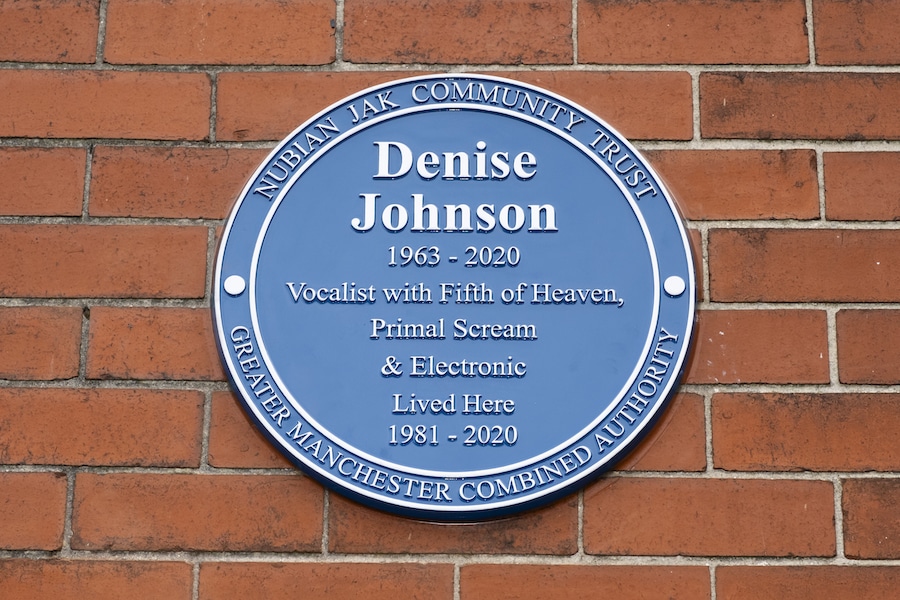
Three plaques have been approved, with more on the way. The first honourees are three remarkable women: Denise Johnson, Diane Charlemagne, and Sister Rosetta Tharpe.
Denise Johnson, a beloved Manchester singer, was known for her soulful voice, which graced tracks like Primal Scream’s Screamadelica and Fifth of Heaven’s ‘Just a Little More’, Electronic’s ‘Get the Message’, ACR’s ‘Turn Me On’.
Denise had been preparing to release her debut solo album, Where Does It Go, when she tragically passed away in 2020. It was released posthumously and you can listen to it here
“I was a friend of Denie’s and admired her work for years, and her death was a huge shock to me, friends, family and the music community. Her passing was heartbreaking for many of us,” Karen said.
“We had all been looking forward to celebrating her achievement. I wanted to commemorate that.”

Diane Charlemagne, another Manchester icon, was a vocalist and songwriter whose voice can be heard on songs like Goldie’s ‘Inner City Life’, 52nd Street’s Tell Me How It Feels’ and Urban Cookie Collective’s ‘The Key, The Secret’
Diane, like Denise, was a trailblazer in the industry, yet her contributions are often overshadowed.
“These women sold millions of records, but outside of Manchester, many people might not know their names. They’ve had an incredible impact on British music, yet they remain underappreciated.”
Sister Rosetta Tharpe, an African American singer and guitarist from Arkansas, is often called the “Godmother of Rock ‘n’ Roll.”
Her influence on the genre is immeasurable, yet her contributions are frequently overlooked in popular music history.
In 1964, Sister Rosetta performed in Manchester on the Blues and Gospel Train, an event produced and filmed by Granada TV. The producer of the show was Johnnie Hamp, who also gave his support for the plaque for Rosetta.
Her iconic performance continues to inspire musicians around the world, yet there is no permanent plaque or statue commemorating her time in the city.
“Sister Rosetta was posthumously inducted into the Rock and Roll Hall of Fame in 2018, so it’s about time we honoured her here in Manchester.”
Karen’s vision for the Blue Plaque project is clear.
“My main goal is to ensure that people recognise the significant contributions these women made to Manchester’s music scene and to British music as a whole.
“Too often, their contributions are overlooked, or people assume their influence has already been acknowledged when, in reality, they haven’t received the recognition they deserve.
“This initiative is about balancing the narrative of Manchester’s musical history.”
Karen’s work is about more than just plaques—it’s about creating visible, lasting tributes that future generations can connect with. “
Manchester is often seen as the music city of the UK, yet there’s so little tangible recognition for its cultural contributions.
“Even though we have resources like the Manchester Digital Archive, it’s still important to create physical locations where people can connect with the history, learn about the artist, and discover more about their work.”
Blue Plaques for Black Music
The Blue Plaques for Black Music initiative is just the beginning of Karen’s mission to ensure that Manchester’s Black music history is preserved and celebrated.
As the campaign gains momentum, Karen hopes that the plaques will serve as a reminder of the city’s rich cultural heritage and the invaluable contributions of Black musicians who have shaped the sound of Manchester and beyond.
- This article was last updated 8 months ago.
- It was first published on 29 August 2024 and is subject to be updated from time to time. Please refresh or return to see the latest version.
Did we miss something? Let us know: press@ilovemanchester.com
Want to be the first to receive all the latest news stories, what’s on and events from the heart of Manchester? Sign up here.
Manchester is a successful city, but many people suffer. I Love Manchester helps raise awareness and funds to help improve the lives and prospects of people across Greater Manchester – and we can’t do it without your help. So please support us with what you can so we can continue to spread the love. Thank you in advance!
An email you’ll love. Subscribe to our newsletter to get the latest news stories delivered direct to your inbox.
Got a story worth sharing?
What’s the story? We are all ears when it comes to positive news and inspiring stories. You can send story ideas to press@ilovemanchester.com
While we can’t guarantee to publish everything, we will always consider any enquiry or idea that promotes:
- Independent new openings
- Human interest
- Not-for-profit organisations
- Community Interest Companies (CiCs) and projects
- Charities and charitable initiatives
- Affordability and offers saving people over 20%
For anything else, don’t hesitate to get in touch with us about advertorials (from £350+VAT) and advertising opportunities: advertise@ilovemanchester.com
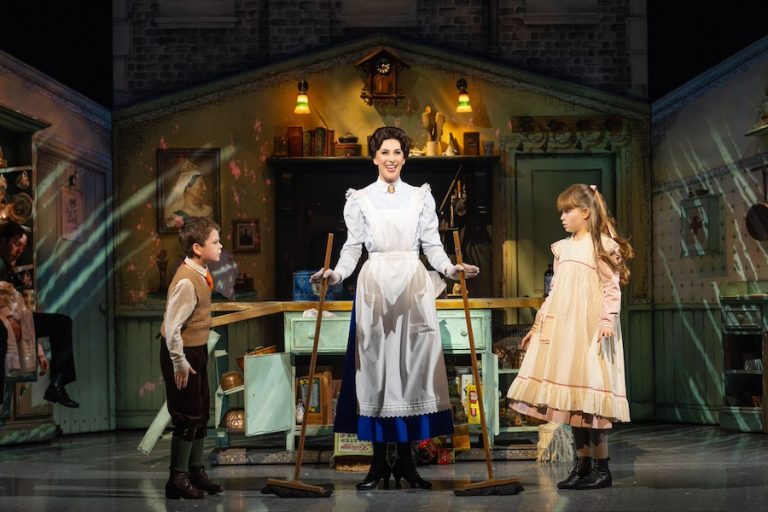
Review: Mary Poppins at Palace Theatre is ‘a whirlwind of whimsy and wonder’
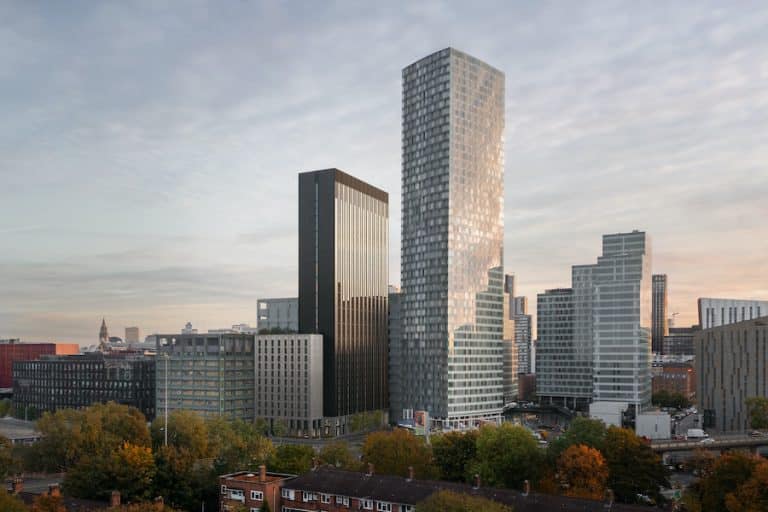

The Manc aerobics queen who trained the Corrie cast is helping raise charity cash
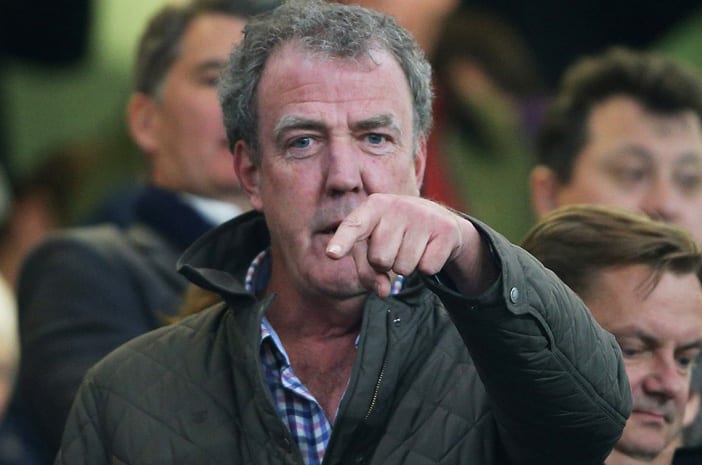
“Manchester is not Britain’s second city, it’s the first” – Jeremy Clarkson
